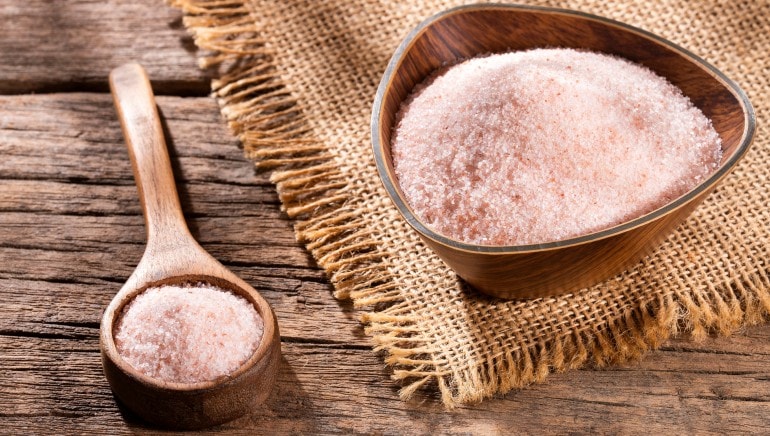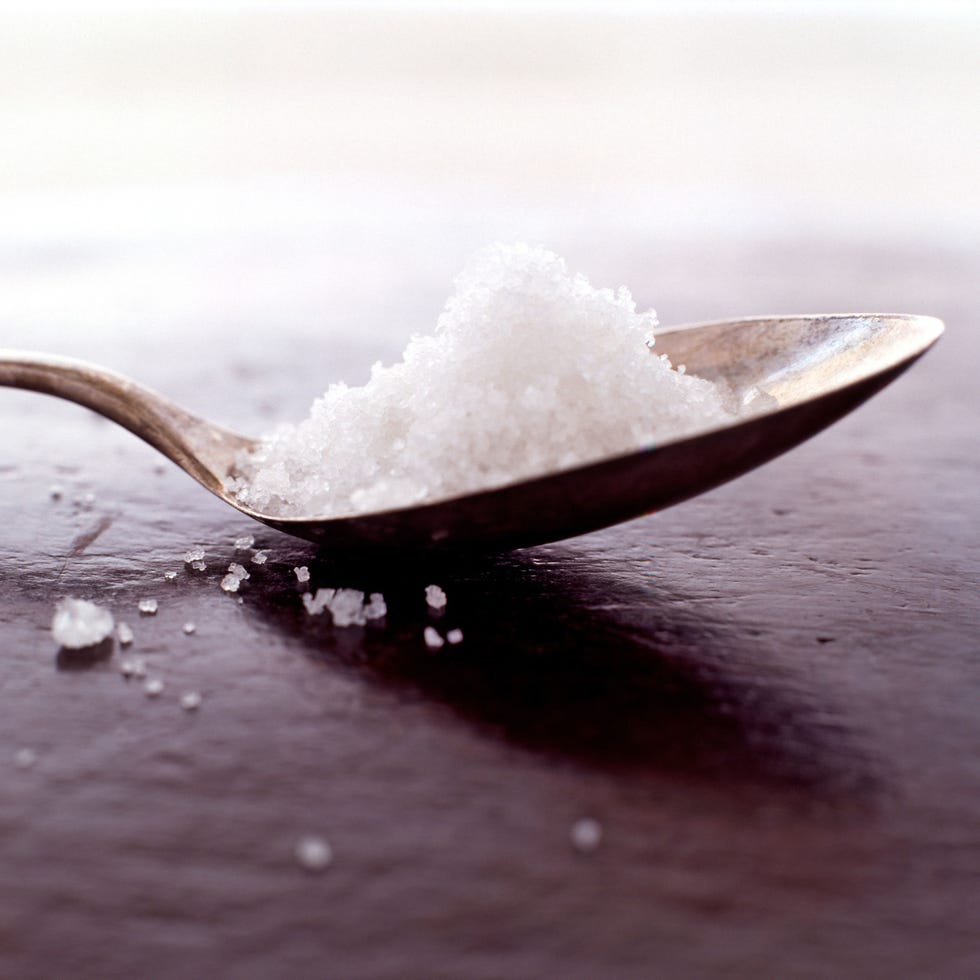Is salt bad for weight loss? Many people who are trying to shed pounds believe that cutting out salt can help them drop weight faster. But does reducing sodium really lead to better results on the scale? Or is it just another weight loss myth? Salt has a complicated relationship with weight loss, and understanding how it affects your body can help you make informed decisions.
In this article, we’ll explore whether salt is really detrimental to weight loss, how it affects your body, and whether reducing sodium intake can speed up your weight loss journey. Let’s break down the facts, separate myths from reality, and give you practical advice on how to manage salt in your diet.

What is Salt and Why Does it Matter?
Salt, primarily composed of sodium and chloride, is an essential mineral that helps regulate fluid balance, nerve function, and muscle contractions. Our bodies need a small amount of sodium to function properly, but consuming too much salt can cause a range of health problems. When it comes to weight loss, sodium’s effect is mostly linked to water retention, which can lead to temporary weight gain or bloating.
But does consuming salt actually hinder your ability to lose weight? Let’s explore how salt can impact your weight loss efforts.
How Does Salt Affect Weight Loss?
While the relationship between salt and weight loss is often debated, there are a few key factors to consider. Salt itself doesn’t directly cause fat gain, but its effects on water retention can influence how you feel and how the scale responds.
1. Water Retention and Weight Fluctuations
One of the main ways salt affects weight loss is through water retention. High sodium levels in the body can cause your body to hold onto extra water, leading to bloating and temporary weight gain. This is why you might notice an increase in weight after eating salty foods, even if you haven’t consumed extra calories.
For example, when you consume too much salt, your body works to balance the sodium levels by drawing water into your bloodstream, which increases blood volume and can lead to a temporary rise in body weight. While this is not fat gain, it can make it appear as though you’ve gained weight.
2. Impact on Hydration and Metabolism
Proper hydration is essential for effective metabolism. When your body is dehydrated, it can’t burn fat efficiently. Salt can help maintain hydration by regulating the amount of water retained in your cells. However, excessive salt can have the opposite effect by causing the body to retain more water than needed, leading to a feeling of heaviness and sluggishness.
Maintaining the right balance of electrolytes (including sodium) is important for optimal metabolic function. Dehydration can slow down metabolism, making it harder for your body to burn calories. This means that while salt itself doesn’t contribute to fat loss, managing your sodium intake can help with hydration and metabolism.
3. Blood Pressure and Weight Loss
High sodium intake is commonly associated with increased blood pressure. When your body retains excess water, it can put additional strain on your heart and blood vessels. High blood pressure can interfere with your ability to stay active, which could make it harder to maintain a healthy lifestyle and engage in regular exercise—both crucial factors for weight loss.
By reducing your sodium intake, you can improve your cardiovascular health, maintain normal blood pressure, and create a more favorable environment for weight loss.
Can Cutting Salt Help You Lose Weight?
The idea that cutting salt from your diet can help you lose weight stems from the fact that reducing sodium can decrease water retention. However, this effect is only temporary and does not result in long-term fat loss.
A study published by the National Institutes of Health found that a low-salt diet can lead to a reduction in water weight. But keep in mind that this is not fat loss. While the scale might show a decrease in weight after reducing salt, this drop is often due to a reduction in water, not body fat. For actual fat loss, you need a caloric deficit—where you burn more calories than you consume—through a balanced diet and regular exercise.
Benefits of Reducing Salt Intake for Weight Loss:
-
Decreases bloating: Less salt means your body will retain less water, which can reduce bloating and make you feel lighter.
-
Supports healthy metabolism: A lower sodium intake can help maintain proper fluid balance, which is essential for a healthy metabolism.
-
Improves digestion: A balanced sodium level can prevent the discomfort of bloating and aid in digestion, making it easier for your body to process nutrients.
How Much Salt Should You Consume for Weight Loss?
While the average recommended sodium intake for adults is about 2,300 milligrams per day, experts recommend aiming for around 1,500 milligrams for optimal health and weight loss. It’s important to find a balance and avoid extreme salt reductions, as sodium is necessary for your body to function properly.

Does Cutting Salt Lead to Fat Loss?
As we’ve discussed, salt affects water retention but doesn’t directly influence fat loss. Cutting out salt can lead to a temporary reduction in weight due to water loss, but it won’t result in lasting fat loss. To truly lose fat, it’s essential to focus on creating a caloric deficit and adopting healthy habits, such as:
-
Eating a balanced, nutrient-dense diet: Focus on whole foods, including fruits, vegetables, lean proteins, and whole grains, to nourish your body and support fat loss.
-
Exercising regularly: Incorporate both cardio and strength training exercises to burn fat and build muscle.
-
Maintaining a caloric deficit: Ensure you’re consuming fewer calories than your body needs to promote fat burning.
Salt, in moderation, is not the enemy of weight loss. It’s an essential nutrient that supports bodily functions, including hydration and electrolyte balance. The key is to avoid excessive salt intake, which can lead to bloating and fluid retention.
FAQ: Is Salt Bad for Weight Loss?
1. Does salt cause weight gain?
Salt itself doesn’t cause fat gain, but excessive sodium can lead to water retention, making it appear as if you’ve gained weight. Reducing salt can help with bloating, but it won’t directly cause fat loss.
2. How does salt affect belly fat?
Salt does not specifically target belly fat. However, too much salt can cause water retention, making the belly area appear bloated. Reducing sodium can help reduce bloating and improve your appearance, but fat loss requires a caloric deficit.
3. Can I lose weight if I eat salt?
Yes, you can still lose weight if you eat salt. Salt is essential for hydration and metabolic function. However, excessive salt intake can lead to bloating and temporary weight gain. It’s important to consume salt in moderation and focus on a balanced diet and exercise for sustainable weight loss.
4. Is reducing salt necessary for weight loss?
Reducing excessive salt intake can help with water retention and bloating, but it’s not necessary for weight loss. For fat loss, focus on a healthy diet, regular exercise, and maintaining a caloric deficit.
5. What are the best ways to manage salt intake for weight loss?
To manage salt intake for weight loss, aim to eat whole foods with naturally low sodium, avoid processed foods that are high in sodium, and balance your intake with potassium-rich foods like fruits and vegetables.
6. How can I reduce salt intake without sacrificing flavor?
To reduce salt intake without sacrificing flavor, try using herbs, spices, and citrus to enhance the taste of your food. Experiment with garlic, onion, pepper, rosemary, and lemon to add zest to your meals without relying on extra salt.
Moderation is Key
Salt is not inherently bad for weight loss, but too much of it can lead to water retention, bloating, and temporary weight gain. Moderating your salt intake can help reduce these effects and support healthy hydration and metabolism. However, fat loss requires a comprehensive approach that includes a balanced diet, regular exercise, and good lifestyle habits.
By being mindful of your sodium intake and focusing on overall health, you can improve your chances of achieving sustainable weight loss. Salt in moderation can be part of a healthy, balanced diet—but it should never be the primary focus of your weight loss strategy.